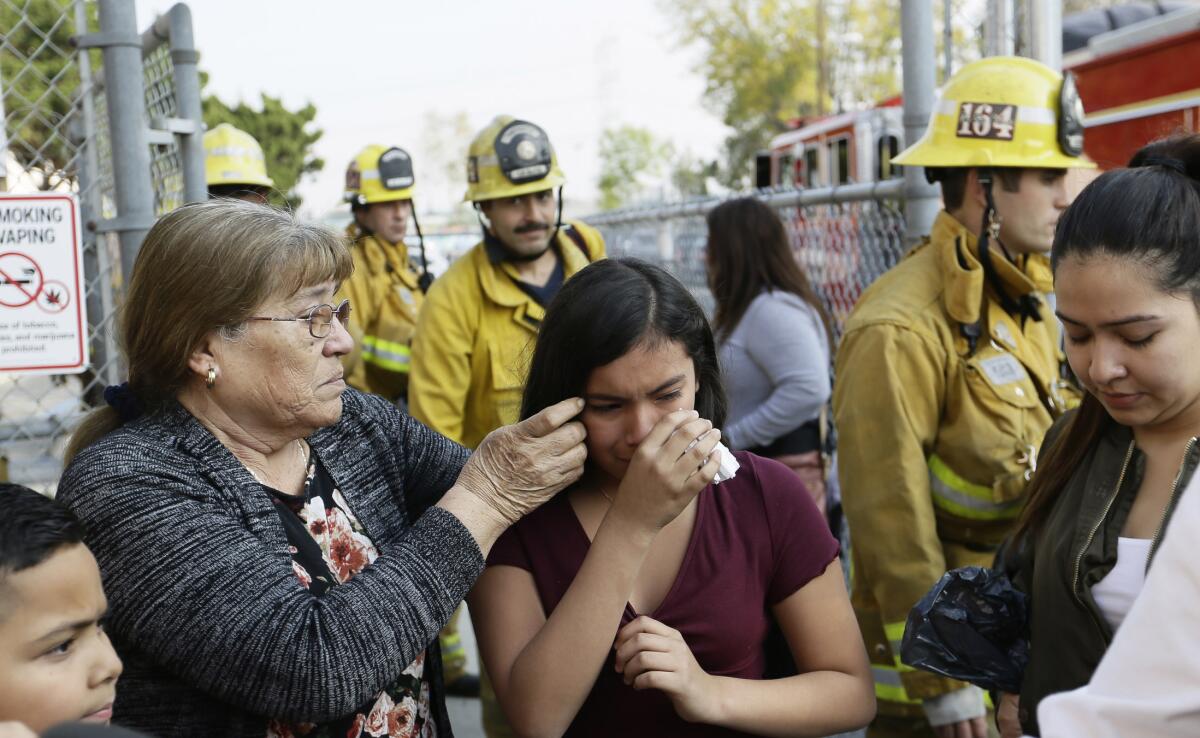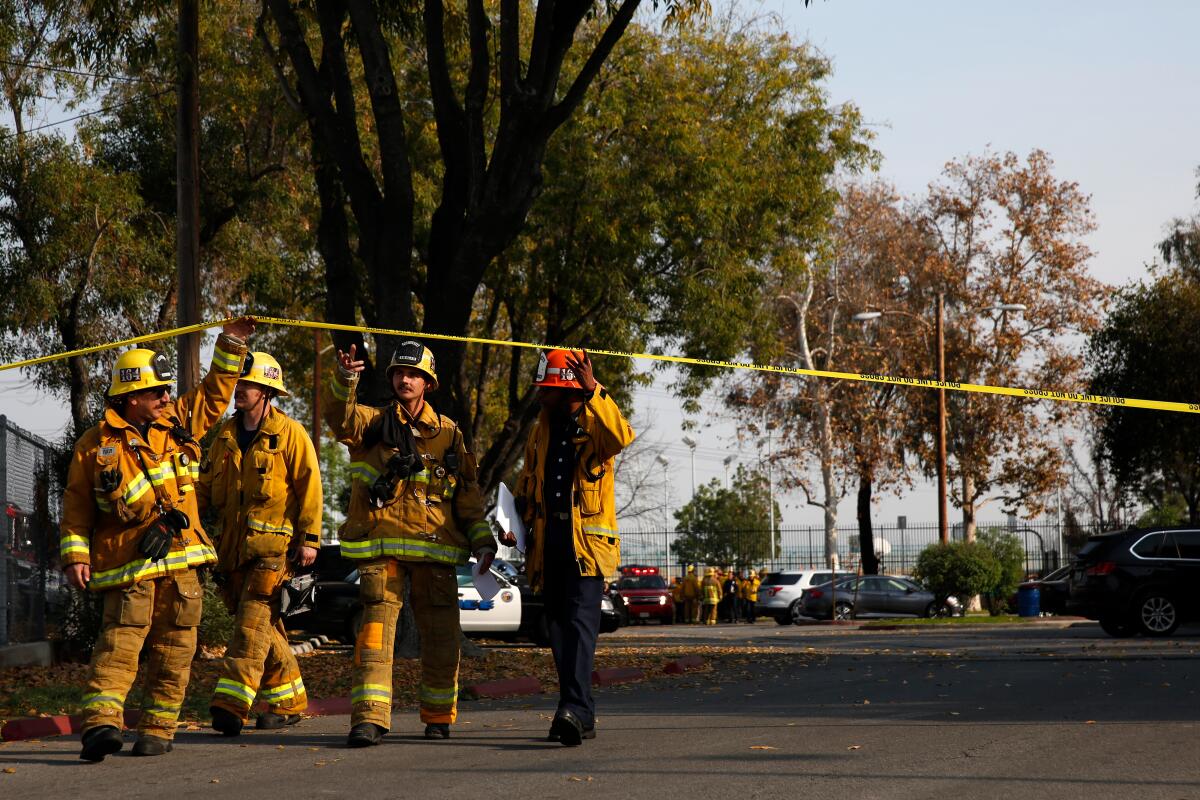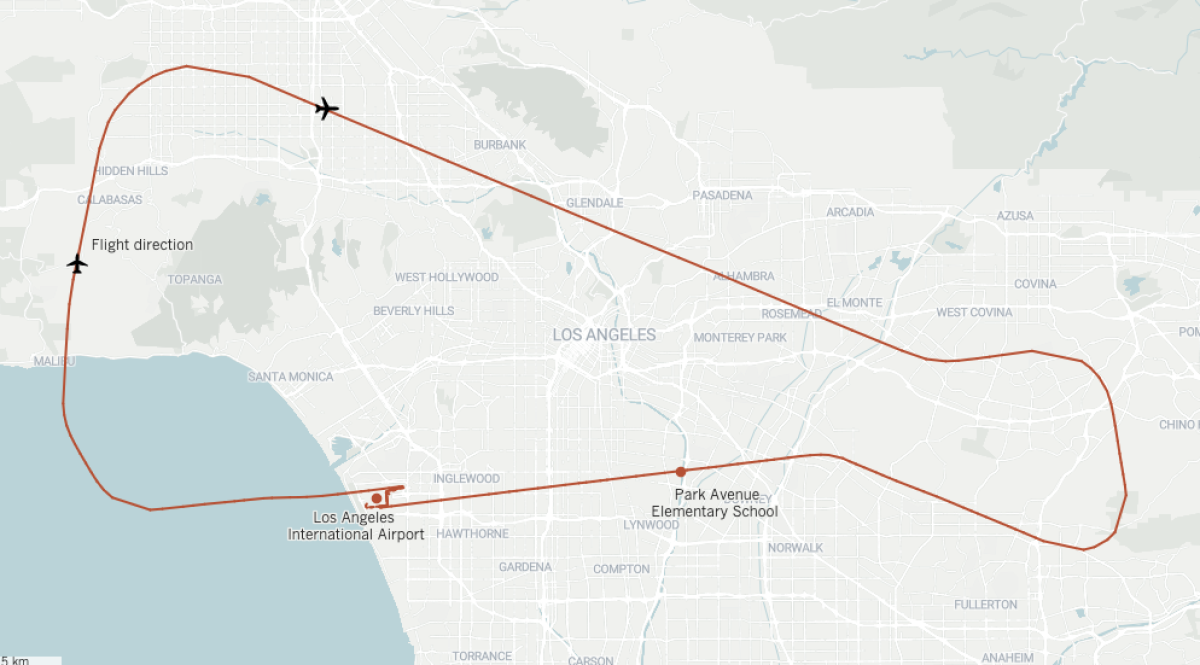Tough questions for Delta after pilots dump jet fuel on schoolchildren

Angry city officials in Cudahy are demanding to know why a Delta jet making an emergency landing at Los Angeles International Airport dropped fuel over a playground, dousing schoolchildren, when federal rules call on pilots to dump fuel in unpopulated areas.
“Sadly, our entire community has been adversely impacted by this incident, including dozens of children,” Cudahy City Councilman Jack Guerrero said. “I am calling for a full federal investigation into the matter and expect full accountability from responsible parties.”
Dozens of people — many of them children — were treated by paramedics, but no one was seriously injured.
Still, the fuel dump over the area has sparked alarm and calls for answers.

Delta spokesperson Adrian Gee said the pilots were forced to dump fuel over an urban area to reduce the plane’s weight before the return landing.
Delta Flight 89 had taken off from LAX with 149 passengers and was en route to Shanghai when it turned around and headed back to the airport because of engine trouble.
The nonstop flight is typically 13 hours long. This one lasted about 25 minutes.
The pilots took the plane — a Boeing 777 — north over Malibu within four minutes after takeoff at 11:32 a.m., according to Flightradar24, a firm that maintains airline path data across the globe.
Experts have said that fuel drops are highly unusual and that there are some questions about what happened Tuesday.
To make an emergency landing, a pilot will try to get the airplane down to its landing weight so there are more options in case of an aborted landing attempt. How and where a fuel dump occurs depends on the type of emergency, said Tom Haueter, former director of the National Transportation Safety Board’s Office of Aviation Safety.
The Federal Aviation Administration and most airlines want pilots to dump fuel over unpopulated areas, such as an ocean, said Douglas Moss, an aviation consultant and a retired United Airlines pilot.

Communications between air traffic controllers and the Delta pilot raise questions about why fuel was dumped over Cudahy roughly 20 minutes into the flight.
That point was also made in a statement issued Tuesday by the FAA.
“The FAA is thoroughly investigating the circumstances behind today’s incident involving a Delta Air Lines flight that was returning to Los Angeles International Airport. There are special fuel-dumping procedures for aircraft operating into and out of any major U.S. airport. These procedures call for fuel to be dumped over designated unpopulated areas, typically at higher altitudes so the fuel atomizes and disperses before it reaches the ground,” the agency said in a statement.
Pilots will typically alert air traffic controllers of the emergency fuel release, and the air traffic controllers will try to direct the plane, said Haueter, who now serves as a consultant on aviation safety and accident investigations.
The drop will typically happen at an altitude of 5,000 feet so the fuel vaporizes before hitting the ground. But if there is a severe emergency, plans may change. “The real key is to know what’s the nature of the emergency,” Haueter said.

According to Flightradar24, Tuesday’s flight never got above 8,000 feet and was at about 2,300 feet when it passed over Park Avenue Elementary School in Cudahy at 11:53 a.m. The plane showered jet fuel on schoolchildren below.
In an emergency, the captain is “authorized to break any rule in the book,” Moss said. “He still tries to adhere to as many of the rules as he can, but the bottom line is, his actions must be in the best interest of safety.”
Ross Aimer, chief executive of Aero Consulting Experts, said fuel dumping is very rare.
“I don’t remember anyone dumping fuel over population,” he said.
More to Read
Sign up for Essential California
The most important California stories and recommendations in your inbox every morning.
You may occasionally receive promotional content from the Los Angeles Times.















